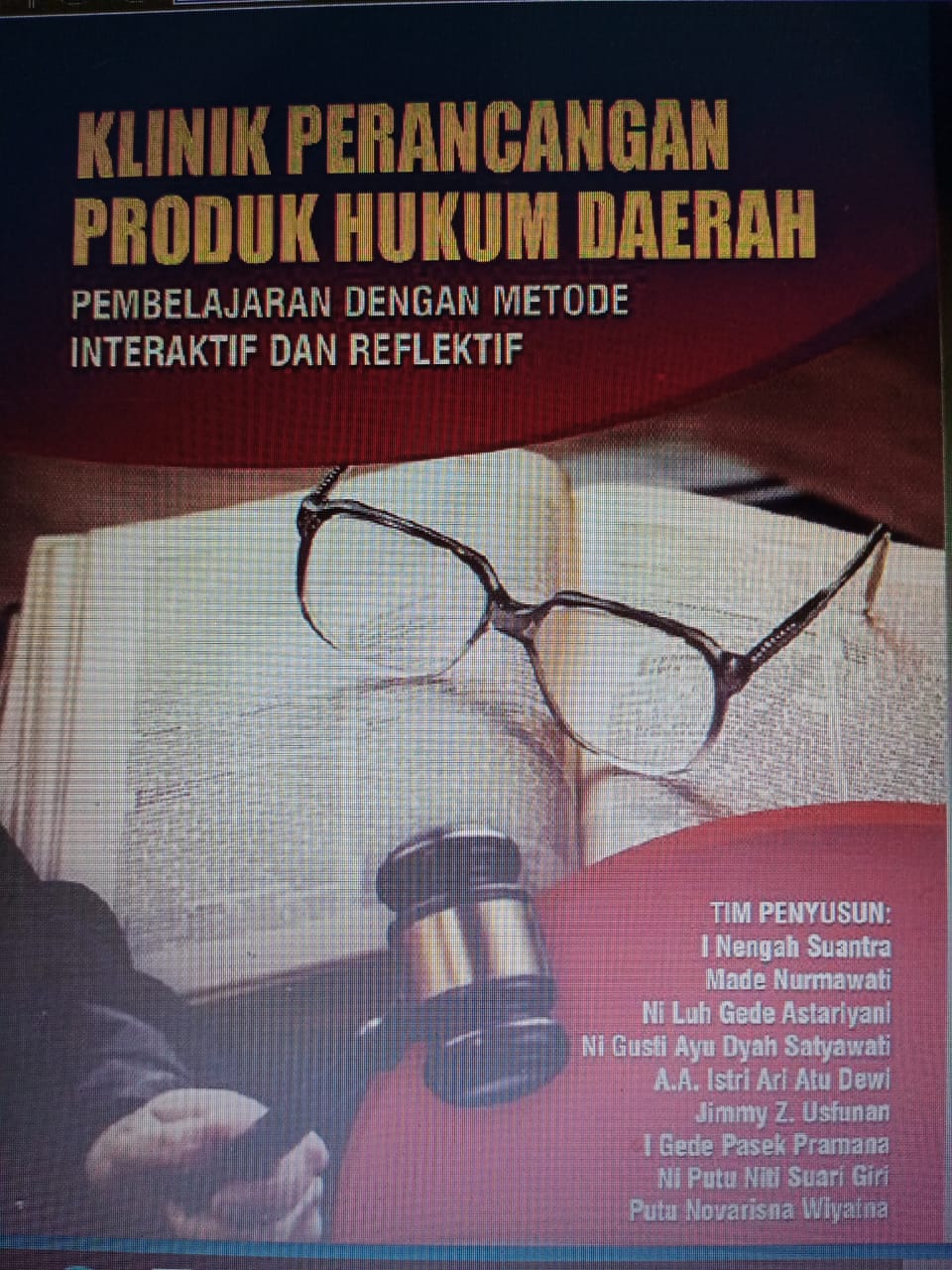
Regional Legal Product Design Clinic: Learning with Interactive and Reflective Methods
I Nengah Suantra,SH,MH; Made Nurmawati,SH,MH; Ni Luh Gede Astariyani, SH,MH; A.A. Istri Ari Atu Dewi,SH,MH; Ni Gusti Ayu Dyah Satyawati,SH,MKn,LLM; Jimmy Z. Usfunan,SH,MH; I Gede Pasek Pramana,SH,MH; Ni Putu Niti Suari Giri,SH,MH
ISBN : 978-602-294-163-7 Published : 2016
Abstrak
The Book on Clinical Design of Regional Law Products covers theoretical and practical aspects in the preparation of regional legal products that begin with an understanding of the concept of Clinical Legal Education (CLE), legal clinics, differences in legal clinics with other practical subjects, as well as other legal clinic implementation models. This course begins by providing knowledge about the basics of Forming Regional Legal Products. After that, it will be continued with the material for the Decision of the Regional Head and the Decree of the Regional People's Representative Council (DPRD), the Draft of the Regional Head Regulation (Perkada) and the Draft of Regional Regulation (Perda).
The process of clinical learning designing local legal products using CLE teaching methods consisting of planning components, experiential components, reflection and evaluation components. The approach used is theoretical and practical. Theoretical approaches include: legal system theory / legal system; stufenbau theory norm selection theory; welding theory; good legalization theory; ROCCIPI; momentum theory; authority theory; and related statutory provisions. Practical approaches include: techniques for drafting academic texts, techniques for drafting decisions by regional heads and DPRD decisions, techniques for drafting regional head regulations and techniques for preparing regional regulations.
Regional Legal Product Design clinical courses provide students with overall skills and skills about the process of preparing local legal products. The implementation of the Regional Legal Product Design Clinic lecture in collaboration with partners who have been woven by FH UNUD so far, namely the Provincial Government of Bali.
